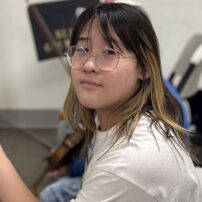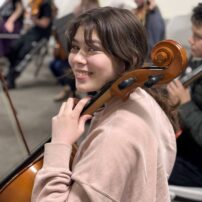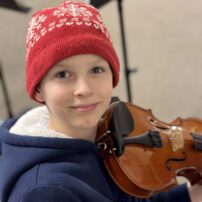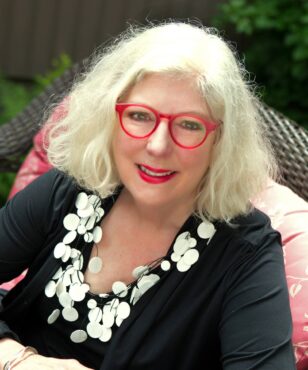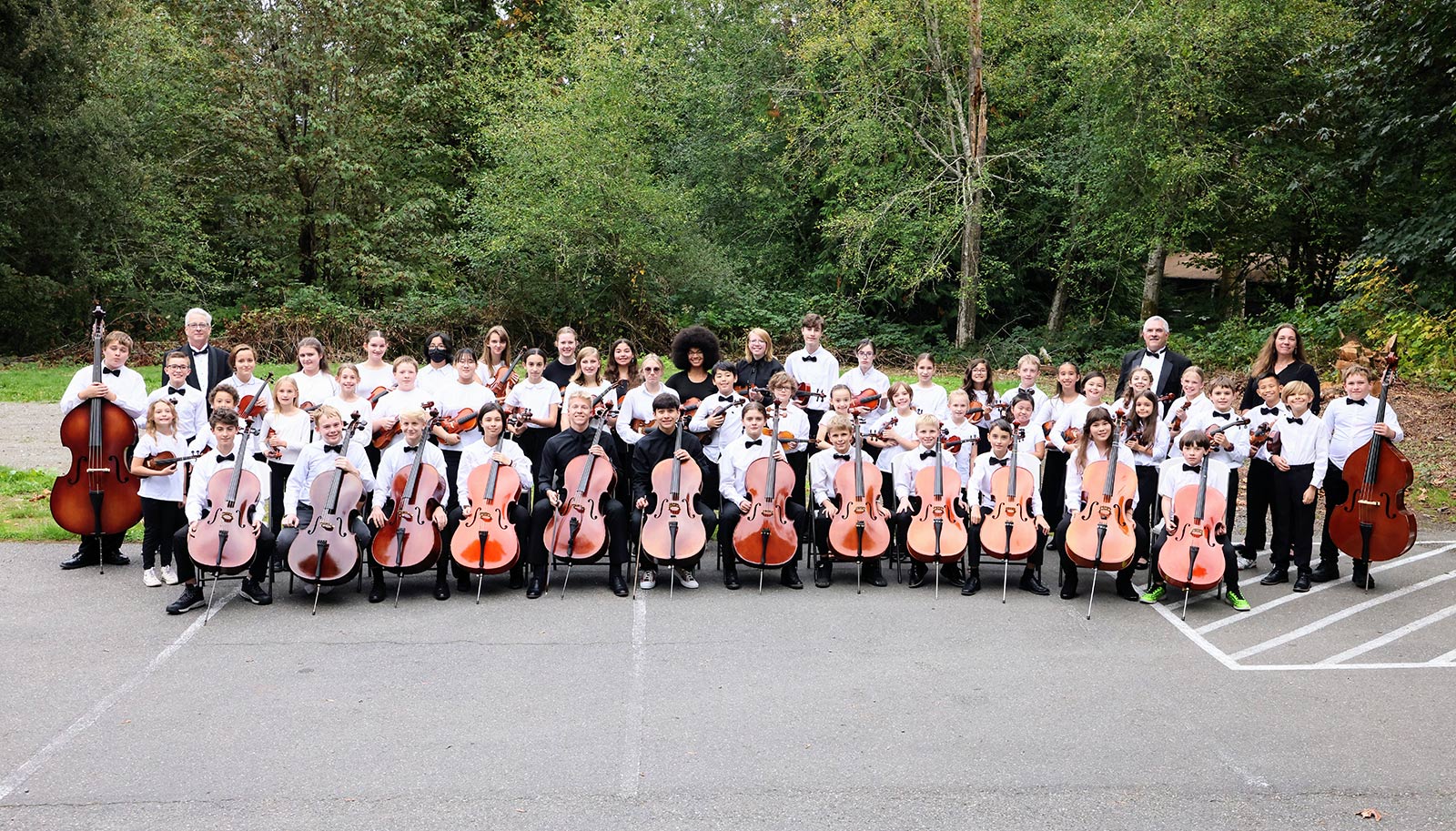 For the three initial founders of the Peninsula Youth Orchestra, Karen Luke Fildes (then Karen Pew), Mary Manning and Stuart Hake, the idea was a giant dream, a “who knows if this will work” dream. Yet, that dream is nearly 27 years old and flourishing. As Hake says, “There was magic when it started in 1998. It was just a special time.”
For the three initial founders of the Peninsula Youth Orchestra, Karen Luke Fildes (then Karen Pew), Mary Manning and Stuart Hake, the idea was a giant dream, a “who knows if this will work” dream. Yet, that dream is nearly 27 years old and flourishing. As Hake says, “There was magic when it started in 1998. It was just a special time.”
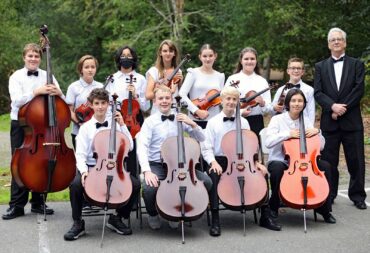 Fildes explains that she had a neurodivergent child who “needed something to belong to, something to love.”
Fildes explains that she had a neurodivergent child who “needed something to belong to, something to love.”
“My daughter just needed a cello,” Fildes says. “I found Stuart Hake, who became her teacher and just realized that there was not a way for young string players to play together on this side of the Tacoma Narrows bridge. That camaraderie and playing together is very vital.”
Like a lot of school districts, the Peninsula School District makes tough choices about what to fund, what not to fund. And, like a lot of school districts, these tough choices mean that music programs, string programs, get cut or don’t exist.
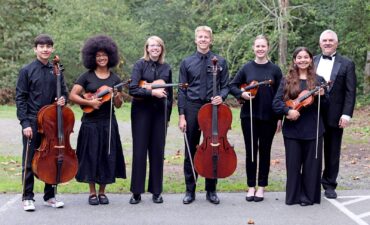 Fildes understood the needs of her daughter, as she, too, is neurodivergent. “Music was just stimulating. I got into music at a young age and remember listening to Handel’s ‘Water Music’ with my mom,” she says. “I was hooked More than that, I felt like I belonged.”
Fildes understood the needs of her daughter, as she, too, is neurodivergent. “Music was just stimulating. I got into music at a young age and remember listening to Handel’s ‘Water Music’ with my mom,” she says. “I was hooked More than that, I felt like I belonged.”
The Peninsula Youth Orchestra (PYO) founders believed that all kids need a place to belong. With the tagline “Supporting music … believing in you,” they launched their first year with a summer music camp.
“That first year, we had about 45 kids and three different teachers. We charged one-third [of the kids] for tuition, one-third for half-tuition and the last one-third attended for free. I got all the instruments donated,” says Fildes, her voice gleeful, echoing the pride of those early years.
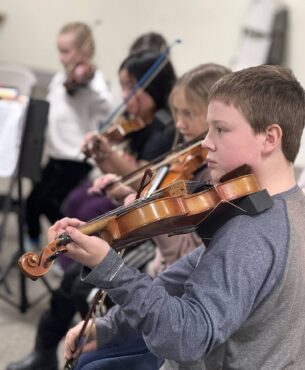 “From the very beginning, we were taking the place of a school program and wanted kids to have the opportunity to learn and play together,” Manning says. “It was, and still is, a program focused on teaching strings.”
“From the very beginning, we were taking the place of a school program and wanted kids to have the opportunity to learn and play together,” Manning says. “It was, and still is, a program focused on teaching strings.”
The founders also recruited extraordinary teachers. Andrea Bryant (who died a few years ago) taught violin. “She was a living violin pillow who was able to bring self-discipline and joy to the kids,” Fildes says. “She was a teacher’s teacher.”
Hake fondly remembers Karla Epperson, who was with the organization for many years. “She came out of retirement to take over the beginning kids and brought decades of experience and a class system we still use today,” he says. “Karla is in the Washington Music Educators Hall of Fame; she helped make this organization what it is today.”
Of course, all big ideas need money and support, and Manning gives credit to Fildes. “All of this could not have happened without Karen,” she says. “She had the ability to raise the money.”
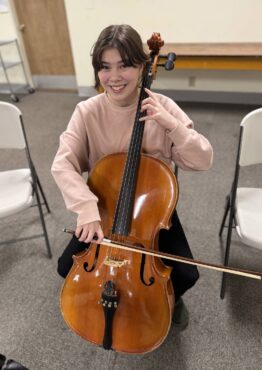 Fildes says that in the beginning, that effort was a lot about “old-fashioned marketing.” That included writing letters and “borrowing” the 501(c)(3) nonprofit status from the Peninsula Art League until PYO got its own.
Fildes says that in the beginning, that effort was a lot about “old-fashioned marketing.” That included writing letters and “borrowing” the 501(c)(3) nonprofit status from the Peninsula Art League until PYO got its own.
“Things just gathered for the purpose of beauty, and it became contagious. We got the Margaret K Williams Award from Pierce County,” she says. “We gave the kids popsicles, had snacks and they just played music. It gave the kids something to do, and each one wanted everyone to do well.”
Learning to play a string instrument and then playing together in an orchestra requires physical stamina, communication and teamwork. Sounds like sports? In some ways, it is, according to those who have played in orchestras, and it fosters the same skills. Manning explains that learning to play in an orchestra is learning a modern-day workplace skill.
“Playing together, creating that sonority of sound, students learn that they are part of something so much larger,” she says. “It is in these teams that students are creating and recognizing each individual’s own creation is vital. Music is an endeavor that involves the heart as well as the mind.”
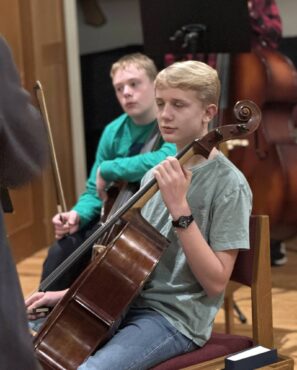 Today, PYO thrives. It has four level-based orchestras, which draw kids from Tacoma, the Key Peninsula, Kitsap County, as well as the greater Gig Harbor area.
Today, PYO thrives. It has four level-based orchestras, which draw kids from Tacoma, the Key Peninsula, Kitsap County, as well as the greater Gig Harbor area.
The “debut” program caters to beginners. For the “encore” orchestra and the two subsequent ones, “juniors” and “youth,” students have to audition annually. “Encore” students generally have been playing for two to three years.
“Really, it does not matter the child’s age, it is their knowledge of string playing,” says Christy Jones, the current executive director, whose own children have been part of the program. “Here, kids learn to become familiar with the instrument of their choice and, most importantly, discover that playing music is fun.”
Hake, a cellist, conducts the juniors orchestra. As the name implies, it caters to middle school students (with some exceptions) and these students usually have been playing for about three or so years.
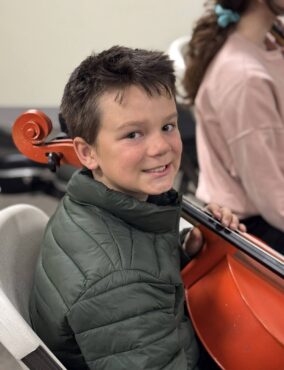 “At this age, it is such a unique way to interact with children — when they are playing, they are fully grown up and focused,” Hake says. “But in the midst of rehearsal, they are giggling and goofy. It is great to watch the emotional concepts music brings. It is a mindset they will not experience in any other situation.”
“At this age, it is such a unique way to interact with children — when they are playing, they are fully grown up and focused,” Hake says. “But in the midst of rehearsal, they are giggling and goofy. It is great to watch the emotional concepts music brings. It is a mindset they will not experience in any other situation.”
The youth orchestra is the most advanced group, conducted by Matthew Underwood (who also conducts the Gig Harbor Civic Orchestra) with the most challenging repertoire. Mostly the members are high school age, with an occasional eighth-grader. At this level, some students want to have an opportunity to play with a full orchestra, so sometimes they join organizations like the Tacoma Youth Symphony, where they can perform a full orchestral versus string ensemble repertoire.
Any student, regardless of level, has access to instruments. The PYO has its own instrument collection and charges families $50 a year for rental. Tuition for participation ranges from $470 for the debut level to $610 for youth. There are incidentals such as a $15 audition fee for all levels except debut and $100 for organization registration.
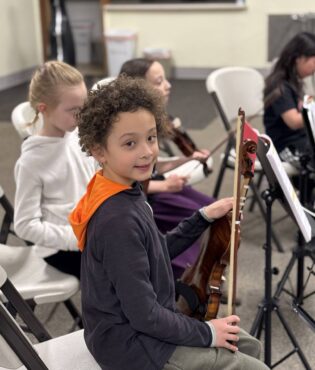 That initial idea of serving all kids remains with the PYO. “Overall, we do our best to keep the program affordable, and due to generous grants and donations, we are able to work with families so that students can participate,” Jones says.
That initial idea of serving all kids remains with the PYO. “Overall, we do our best to keep the program affordable, and due to generous grants and donations, we are able to work with families so that students can participate,” Jones says.
The organization now partners with PenMet Parks for the summer music camp in August, a highlight of which is the concluding annual summer concert.
“We do a concert every summer camp where the kids of all levels play together,” Hake says. “You watch all these kids whose lives pass before them: The little ones see their future, what they can become; and the older ones look back and see how far they have grown.”
Jones says that the PYO wants to do even more, including getting into the schools more. To this end, the organization has partnered with parent-teacher associations to offer before-school programs at elementary schools. Last year, they organized three programs — at Discovery, Pioneer and Voyager elementary schools. This year, there is a program at Swiftwater Elementary. The biggest challenge is to get talented, high-quality musicians to teach the program.
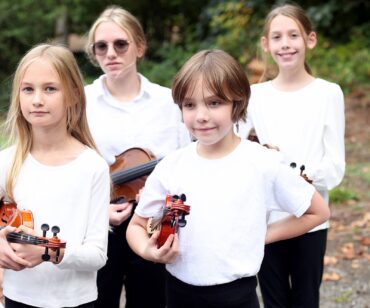 Manning underscores the service the organization offers to the school district, saying, “Both high schools do musicals and the pool of string players for the musical orchestras — well, they mostly come from our string community of kids.”
Manning underscores the service the organization offers to the school district, saying, “Both high schools do musicals and the pool of string players for the musical orchestras — well, they mostly come from our string community of kids.”
Looking to hear young musicians play their hearts out? The next performance of the Peninsula Youth Orchestra will be in June, at the end of the school year, at Peninsula High School. Admission is free, but there is always a donation box.
“We really appreciate the generosity of our community; they are supporting the next generation of musicians,” Jones says. “Even if a kid doesn’t continue playing an instrument, they will always appreciate music at a high level because of their experience with us. We are building the artists and audiences of tomorrow.”



